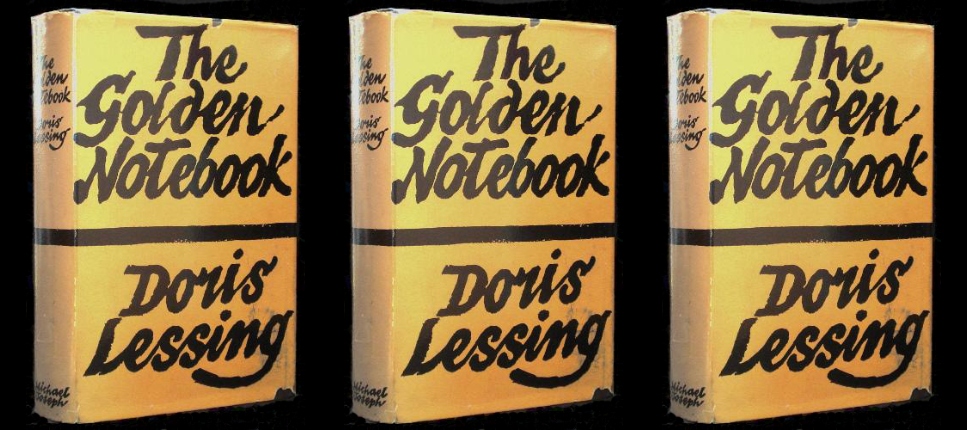TODAY: In 1962, Doris Lessing’s The Golden Notebook is published.
-
“The state of ‘nature,’ like the state of the global climate, can no longer be appreciated from a distance, and its literature can no longer be confined to a single shelf.” Michelle Nijhuis reframes a genre. | Lit Hub Nature
-
Elizabeth Alexander considers the high stakes of textbooks. | Lit Hub Teaching
-
Escape from the Love Canal: How the toxic waters of Niagara Falls poisoned a community. | Lit Hub History
-
Why Elissa Sussman loves a horny heroine. | Lit Hub Criticism
-
New titles from Dolan Perkins-Valdez, Margo Jefferson, Delia Ephron, and more feature among the Best Reviewed Books of the Week. | Book Marks
-
W.H. Flint on William d’Alton Mann, prolific gossip columnist and profligate blackmailer. | CrimeReads
-
Ruth Wilson describes how rereading Jane Austen has brought “a rejuvenation of spirit and energy that has transformed my life.” | The Guardian
-
Relive some of the most unforgettable meals in literature, from Harriet the Spy’s tomato sandwich to chicken soup with rice. | The Atlantic
-
“How do you tell your child, a hopeful reader and listener, that the landscape she loves will look vastly different by the time she grows up?” Belle Boggs on parenting, climate anxiety, and Sandra Boynton. | Ecotone
-
Thirty years after the LA Rebellion, Kiese Laymon considers the burden of bearing witness. | Harper’s Bazaar
-
Parul Sehgal discusses the pleasure of language, the emotional arc of criticism, and em-dash abuse. | The Oxonian Review
-
“As I consider the married queers I know, it seems plausible that queer people have changed marriage as much as it’s changed us.” Garth Greenwell considers a “new and undramatic happiness.” | Esquire
-
Was Aldous Huxley… a bad art friend? | Lapham’s Quarterly
-
“I never in a million years thought I’d have to defend this book.” Jason Tharp on facing resistance for It’s Okay to Be a Unicorn!. | The Washington Post
-
Do you recognize yourself in this taxonomy of bookstore browsers? | Slate
-
“The goal is to write regularly enough that it feels weird not to do it, so that you generate material.” Jennifer Egan’s advice for emerging writers. | LARB
-
Why won’t the MFA discourse die? | Quite Useless
-
David Ulin looks at the history of the Stanley Rose Book Shop, a haven for Los Angeles writers during the 1930s. | Los Angeles Times
-
What’s the deal with people who furnish their homes with books they don’t intend to read? | The Guardian
-
Spoiler alert: We’re having the wrong conversation about spoilers. | Vox
-
Nicole Chung offers advice for writing about people in your life. | The Atlantic
Also on Lit Hub:
Sven Birkerts on discovering the story you need to write • Samantha Hunt on the delirium of loving language • What can we learn from the vast archive of Muriel Rukeyser’s unfinished work? • Liana Finck on how to write like a cartoonist • Sina Queyras on Sylvia Plath’s “Lady Lazarus” • Jake Goldwasser on his journey to The New Yorker’s cartoon lounge • Shelf Talkers from the staff at East Nashville’s The Bookshop • Behind the scenes of ACT UP’s groundbreaking “Kissing Doesn’t Kill” campaign • Why we should care about saving coral reefs • How Indigenous societies resisted the binary thinking of colonialism • Melissa Chadburn reveals what she’s reading now and next • How a group of concerned citizens started the fight against DDT • Why the color red carries so much weight in film and literature • Is art more gift or capital? • Jeff Deutsch on the magic of a bookstore’s quiet moments • Dawn Winter in praise of flawed heroines • Valzhyna Mort discusses the patient listening of writing poetry • Antonia Pont against (the very idea of) procrastination • How a mundane anthropologist and bureaucrat helped contribute to American colonialism • On the “historiographic smear campaign” leveraged against ancient Persia • Notes on time, memory, and the artifacts we leave behind • Craft lessons in writing about disability • How Benjamin Franklin helped create modern philanthropy • Is Croatia is going the reactionary route of Poland and Hungary? • Lynn Hill on conquering the climb up El Capitan
